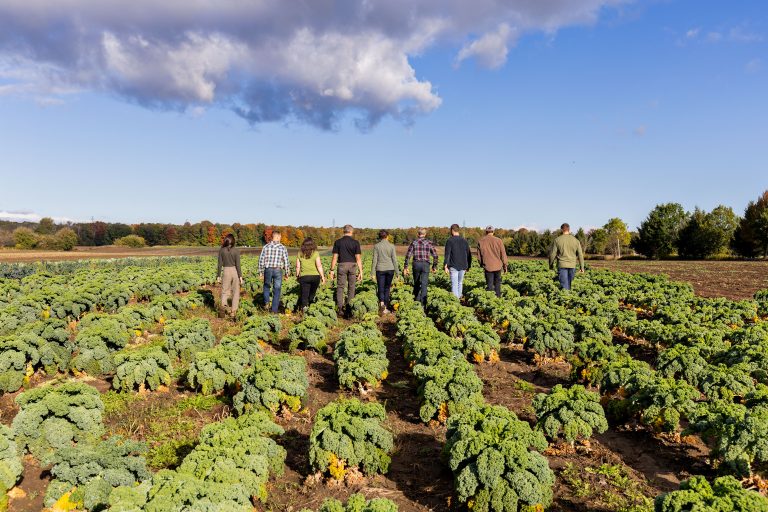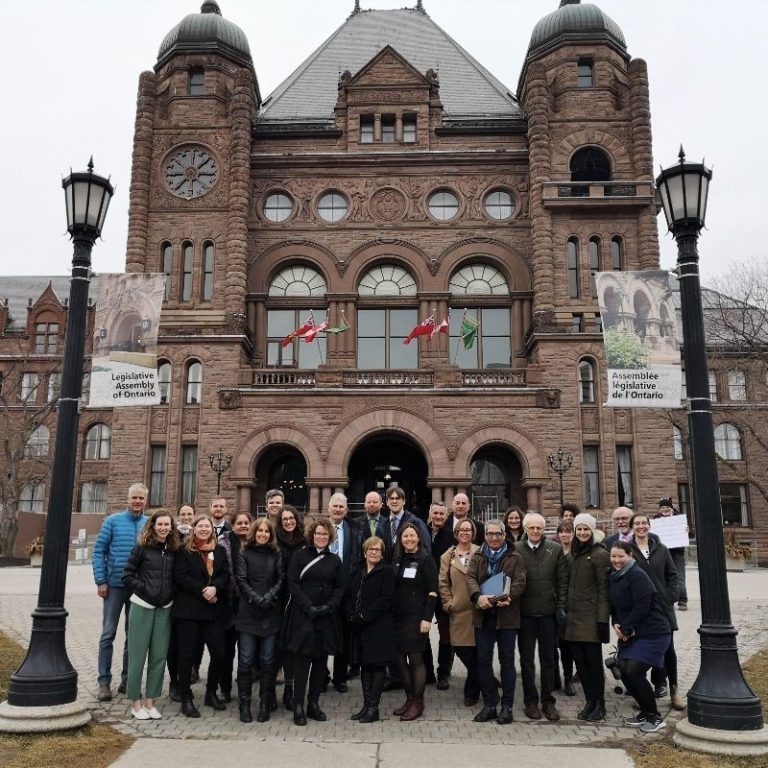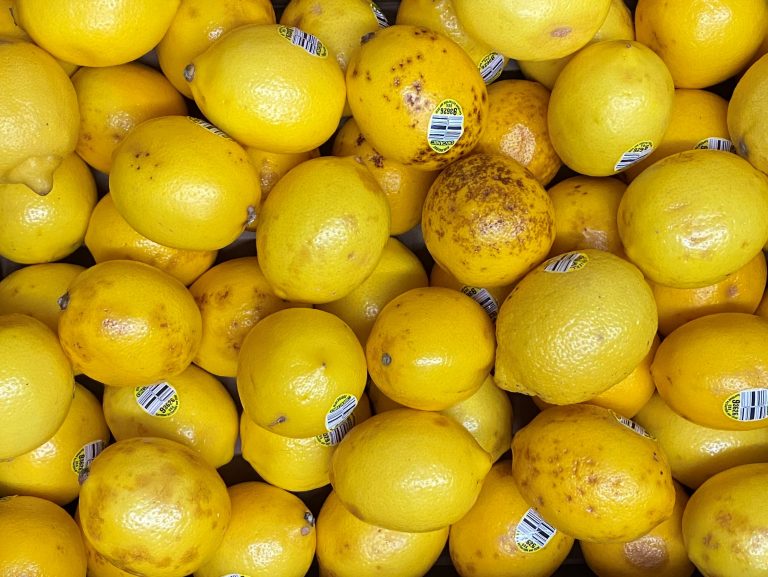If the first argument made in favor of organic food isn’t the health benefits, then it is likely that the environmental benefits of organic will be that first argument made by its supporters. Organic agriculture has been touted by its supporters not only as a system that can benefit the environment and slow the effects of climate change, but also as a more resilient system in the face of an increasingly uncertain future. This is not to say organic farming is, by default, better for the environment, but that the principles and values of organic promote and reinforce the need to return what is taken from the environment and to create harmonious systems that contribute to and protect the very means in which we derive our food.
Such goals can be achieved through a multitude of different means that are not inherently exclusive to organic, such as the use of organic compost to increase the fertility of soil, companion planting that create beneficial relationships between crops, or the rotation of crops that allow the environment to recover nutrients lost during a growing season etc. Such techniques can be (and often are) implemented in combination with each other or in isolation depending on the aims and goals of the farmer(s) in question, and since each system have varying effects on the environment, it is important to understand each organic system has different relationships with their crop, the soil they use, and the wider ecosystem that surrounds them. Furthermore there is no one-size-fits all solution to creating a harmonious system between agriculture and the environment, nor is there a point at which the farmer can stop working to improve their agricultural system; as they must constantly improve, monitor, and adapt in order to balance the production of their farm and their effects on the environment. It takes a lifetime to increase and maintain the health of a farm, but only a couple years of mismanagement to lose it all.
With this in mind, we can speak about some of the common impacts organic agriculture has on the environment (though we will likely be diving into the specifics of different organic techniques in the future). One of the most important and positive impacts of organic agriculture takes the form of increased ecology and soil health, as both factors create a system that is more resilient to both climate and pests. Organic agriculture places great emphasis on creating healthy soil with each passing season, often by recycling organic material (compost) back into the soil, or in some cases utilizing no-till methods that allow root and fungi systems to develop naturally without interference. By creating healthier soil in these ways, organic farmers create a system that is more resilient to the effects of drought, as soil full of organic matter and increased biodiversity (such as worms, arthropods, and nematodes) has the ability to retain more moisture over longer periods of time without constant irrigation. Less irrigation means less consumption of water, and less water consumption means less stress on the environment to provide such a valuable resource. Greater water retention also means that a farm will often have a better chance at resisting unpredictable weather and climate, either by retaining moisture in hot weather or even absorbing water more efficiently in wetter weather (in contrast to dry soil which is more susceptible to runoff).
The increase of biodiversity in and above the soil also contributes to combating pest problems, as healthier, more biodiverse soil can strengthen a plant with increased fungal growth that supports root structures, or natural predators such as nematodes that devour harmful pests. These benefits conferred to the plant then have a cascading effect, as the plant is given a greater chance to reach maturity and gain even more resilience to pests and diseases. For instance, a grown broccoli needs less protection from insects once it begins to show fruit, as the leaves normally consumed become less vital to the plant’s survival and growth leading up to harvest. Without the natural benefits of a biodiverse soil, a plant is left without vital defenses, and must use more energy in order to recover from pest attacks and disease (which results in lower yields of produce) or rely on the fertilizer and pesticide inputs of farmers (which creates a reliance on inherently unsustainable methods).
Since organic farming doesn’t use synthetic pesticides, the effects of these chemicals are not imparted onto local wildlife and the environment. For instance, the effects of any synthetic pesticide rarely end with the intended target or pest the chemical is intended to kill, often killing beneficial organisms such as bees. Chemicals also remain on the carcasses of insects or on the leaves of treated crops, which predators, other insects, and scavengers are all too happy to eat unaware of the toxins they ingest. Persistent pesticides, whether synthetic or natural, also have the risk of running off into water reserves and devastating local ecosystems in unforeseen ways. The lack of synthetic pesticides found in organic farming ultimately allows an increase in biodiversity, and helps to minimize the environmental impact of organic farming. Even when the use of natural pesticides becomes necessary, organic systems are not only expected but required to ensure that their use has minimal impact; such as adhering to specific limitations in terms of method and frequency of applications, or creating natural barriers between fields and rivers to prevent the runoff of pesticide into the water table.
The use and maintenance of natural barriers also serves as a means to hinder the effects of pesticide use in neighbouring farms, which always pose a risk to organic systems. When organic systems are positioned next to conventional agriculture, it will often fall to the farmer to ensure their operations are protected. This can place a great deal of stress onto the producers of organic food as they must not only work to promote greater soil health and ensure that their systems have a minimal impact on the environment, but they must also account for the unforeseen actions of their fellow farmers who can undo months or even years of work without realizing so. This is not to pass blame onto the shoulders of conventional farmers who simply operate according to what the current food system expects of them, but I instead bring this point up to highlight the consistent struggle organic farmers face when they must operate in a system that is at constant odds with their objectives. One could easily make the analogy of organic agriculture as a lone island adrift in an empty, one which must compete every day to maintain the life it so carefully cultivates on its shores from the elements surrounding it.
It is the overall goal of many organic farmers to create systems that are resilient in the face of climate change, and keeping the health of the environment both within and around a farm is crucial to that aim. It is foolish to assert that organic farming has ZERO impact on the environment, since agriculture is inherently a system of extracting resources from the earth; but it can be said that organic systems, when following in the spirit of the four principles of organic, work to ensure long-term environmental impacts are lessened and that those impacts that are unavoidable are compensated for with regenerative solutions. In short, it is in the interest of agriculture and our environment that the two work hand in hand with each other rather than be placed at odds for the sake of archaic systems that have long overstayed their welcome. The widespread use of organic systems can ensure that this harmony is accounted for and strengthened, a symbiotic relationship becomes all the more vital with each passing year.
Previous True Cost Tuesday: http://pfenningsfarms.ca/is-organic-healthier/
Sources:
Beyond Pesticides, “Environmental Benefits of Organic.” https://www.beyondpesticides.org/programs/organic-agriculture/why-organic/environmental-benefits
Claudia McNeily, “How organic farming will save us all – if we can throw away our antiquated notions of what it means.” National Post. https://nationalpost.com/life/food/how-organic-farming-will-save-us-all-if-we-can-throw-away-our-antiquated-notions-of-what-it-means
David Pimentel, Paul Hepperly, James Hanson, David Douds, Rita Seidel, “Environmental, Energetic, and Economic Comparisons of Organic and Conventional Farming Systems.” BioScience, Volume 55, Issue 7, July 2005, Pages 573–582. https://academic.oup.com/bioscience/article/55/7/573/306755









